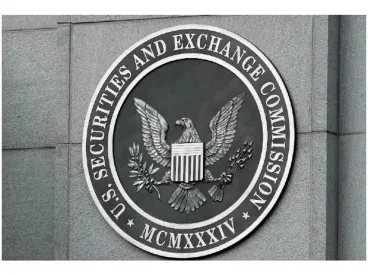The U.S. Securities and Exchange Commission recently announced a settled enforcement action against United Continental Holdings, Inc., the parent of United Airlines (“United”), alleging that United instituted an unprofitable flight route as a favor to a state agency official who could influence matters relevant to the company. The SEC charged violations of the books & records and internal controls provisions of the federal securities laws because United did not follow its internal ethics policies when instituting the route. Without admitting or denying the allegations, United settled and agreed to certain undertakings and to pay a $2.4 million civil penalty. The SEC’s order can be accessed here. The SEC’s action follows a July 2016 Non-Prosecution Agreement between United and the U.S. Attorney’s Office for the District of New Jersey, under which United agreed to pay an additional $2.25 million. A copy of that Non-Prosecution Agreement can be found here.
These are important case resolutions. They may herald a new era of domestic anti-bribery enforcement. They signal that companies may experience some turbulence if they fail to comply with internal policies and procedures. And, they demonstrate benefits of extensive, thorough, and timely voluntary cooperation coupled with early and extensive remediation. Below follows an overview of the United matter and a summary of our key takeaways.
Overview of the United Matter
Before its merger with United, the SEC alleged that Continental Airlines operated a direct flight from its hub at Newark Airport in New Jersey to Columbia Metropolitan Airport in South Carolina (the “South Carolina Route”). Yet Continental canceled the South Carolina Route in 2009 because it was not profitable.
In 2011, David Samson, then Chair of the Port Authority of New York and New Jersey – a domestic government agency that operates Newark Airport – communicated to United that he would like the South Carolina Route to be re-instituted so that he could more easily travel to his home in South Carolina. At the time, the Port Authority was considering a proposal to lease three acres at Newark Airport to United for construction of a new maintenance hangar, which the Company believed “would drive $47.5 million in value to the United Network on an annual basis.” Internal correspondence allegedly suggested that United employees further believed that re-institution of the South Carolina Route would render Mr. Samson more likely to support the lease agreement.
At the time of these discussion, United’s Code of Business Conduct prohibited the provision of gifts intended to influence individuals doing business with United. According to the SEC, reinstituting the South Carolina Route would have required a formal waiver from these policies. The SEC claimed that the South Carolina Route was approved without a waiver or any other documentation regarding the basis for the approval. The SEC alleged that “as a result, no written record reflecting the authorization for the South Carolina Route was prepared or maintained, as required by United’s Policies.”
The Port Authority’s Board approved United’s Newark Airport lease agreement the same day that United’s CEO approved re-initiation of the South Carolina Route. The South Carolina Route subsequently operated at a loss of approximately $945,000 for almost two years before it was terminated in April 2014, shortly after the resignation of Mr. Samson as Port Authority Chairman. In July 2016, Mr. Samson pled guilty to bribery charges arising from his conduct.
Our Key Takeaways From the United Matters
The SEC often uses the books & records and internal controls provisions of the federal securities laws to resolve potential FCPA and other financial reporting and disclosure concerns. Yet there are three notable features to the United matters to which companies and their counsel should pay close attention.
First, the alleged bribery was entirely domestic, but that won’t prevent a government enforcement action. Both the SEC and the DOJ have vigorously and consistently pursued foreign bribery cases via the FCPA over the past few years. And they have made no secret that they intend to continue that enforcement trend in future (with 2016 on pace to see one of the highest totals of corporate FCPA resolutions ever). The United matter, however, demonstrates a willingness by the SEC and DOJ to target companies for alleged domestic bribery as well.
Second, there was no allegation that United’s conduct actually impacted the accuracy of the Company’s financial statements or that its financial records were inaccurate. Rather, the SEC’s charges are premised entirely on United’s alleged failure to comply with its Code of Business Conduct and maintain internal documentation on that issue alone. This is not entirely novel – the SEC has premised alleged FCPA violations on supposed failures to comply with internal policies and maintain documentation of that compliance. See, e.g., In the Matter of BHP Billiton Ltd. and BHP Billiton Plc (available here). Yet the SEC’s renewed reliance on this theory has potentially far-reaching implications. Companies now have to be wary of potential SEC action based on any apparent failure to comply with internal policies and procedures, even outside the FCPA context. Accordingly, companies should pay even greater attention to ensure they have implemented robust and effective compliance programs that employees can and actually do follow.
Third, the United matter highlights the benefits of extensive, thorough, and timely voluntary cooperation coupled with early and extensive remediation. According to the NPA, United conducted an internal investigation, made multiple presentations to the government, disclosed non-privileged information about the conduct of its employees and agents, produced documents, and made its employees available for interviews, among other things. United also improved its compliance and ethics office – including creating a new anti-corruption legal position – enhanced its policies and procedures, conducted new training, and separated from certain of the involved employees. In other words, it is vital for companies to ensure that any deviations from their policies are diligently and cost-effectively investigated, often with the assistance of outside counsel.




 />i
/>i
